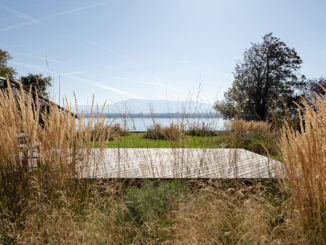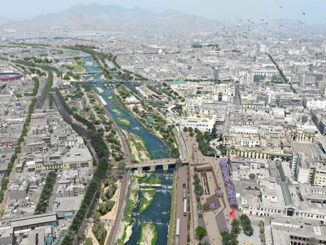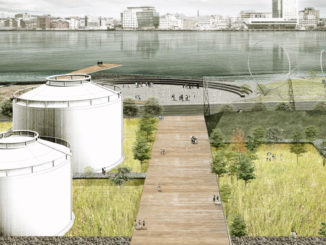Hofbogenpark – The longest roofpark of the Netherlands
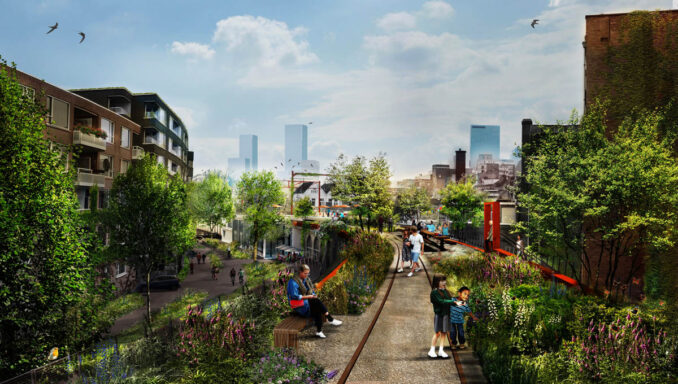
Rotterdam is making plans for a sensational new park called “Hofbogen Park”. The public park is situated on the abandoned elevated railway called “Hofbogen”. The monumental viaduct runs through four urban districts of Rotterdam. With a length of 2 kilometers (1.2 miles) and an average width of only 8 meter (25 feet), the Hofbogenpark will be the longest and narrowest roofpark in the Netherlands.
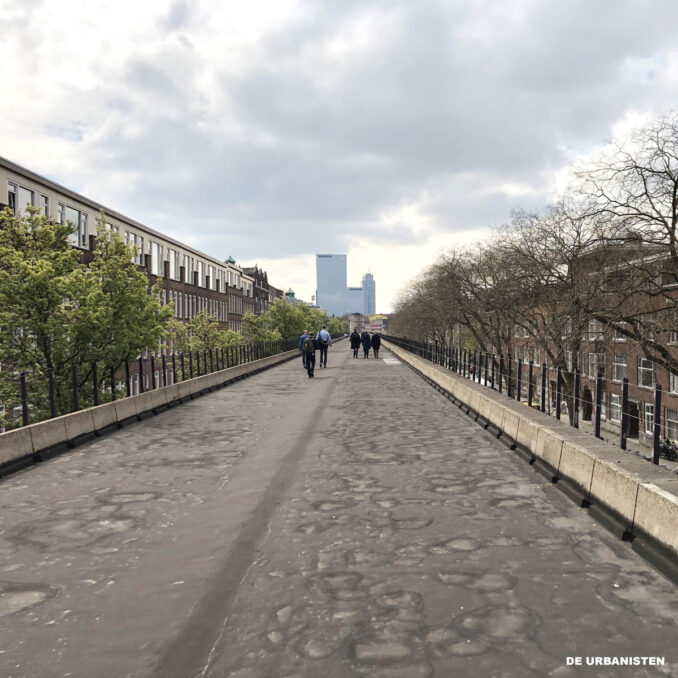
A park for all
The Hofbogenpark invites people of all kinds for a pleasant walk at height through a rich, colorful and fragrant linear landscape. The park is a ‘green lifeline’ that connects the densely populated neighborhoods around it. It offers its visitors a pleasant and welcome space for strolling and lingering in an elevated landscape with flowing water and native vegetation, surrounded by treetops.
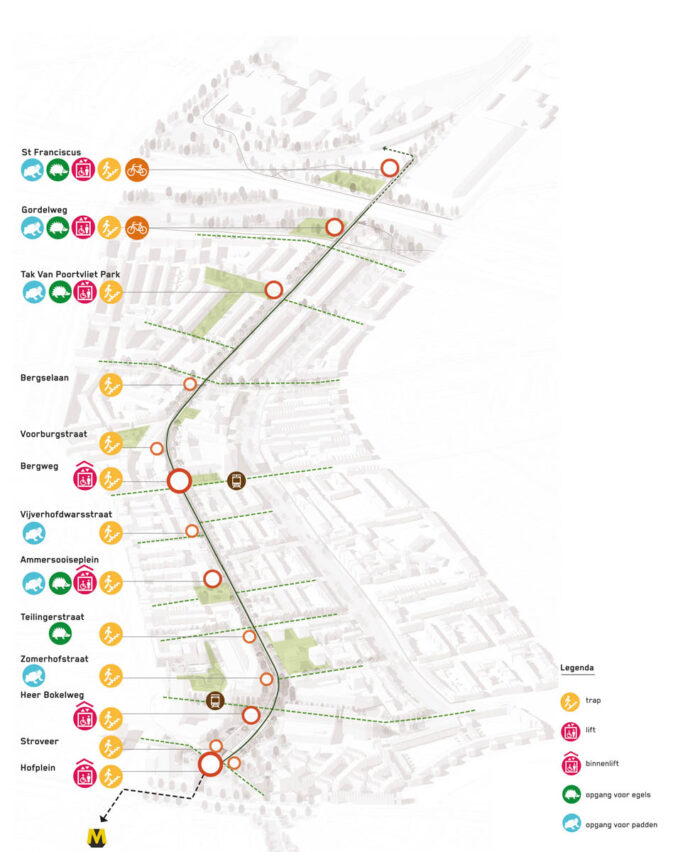
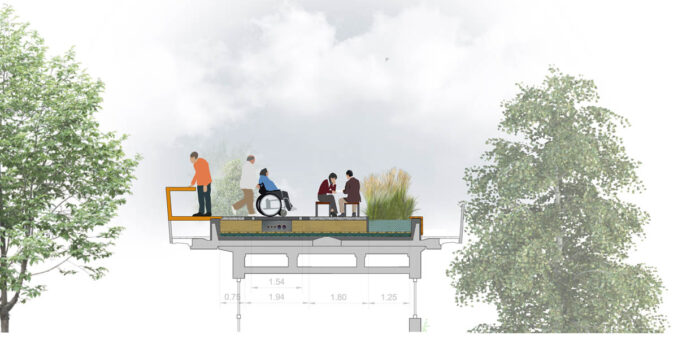
Platforms of different sizes are distributed throughout the park to make place for a rich variety of public activities. There are platforms for people to work, lunch, play, sport, perform, linger and relax. A number of balconies along the line provide the visitors with amazing vistas on the surrounding city. Access to the elevated Hofbogenpark is provided by both stairs and elevators. Some of the access points will be integrated in existing and new buildings along the line.
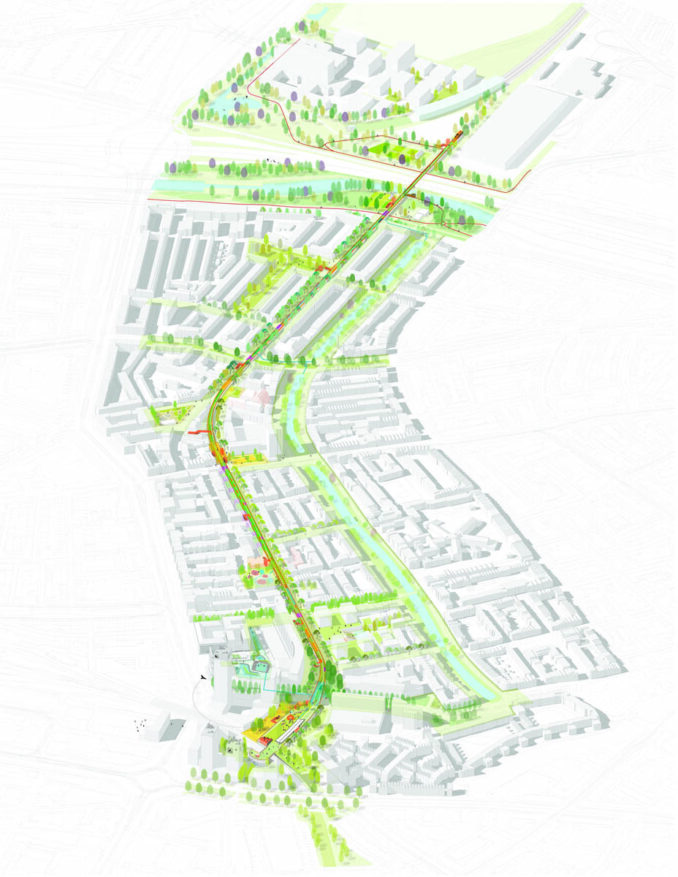
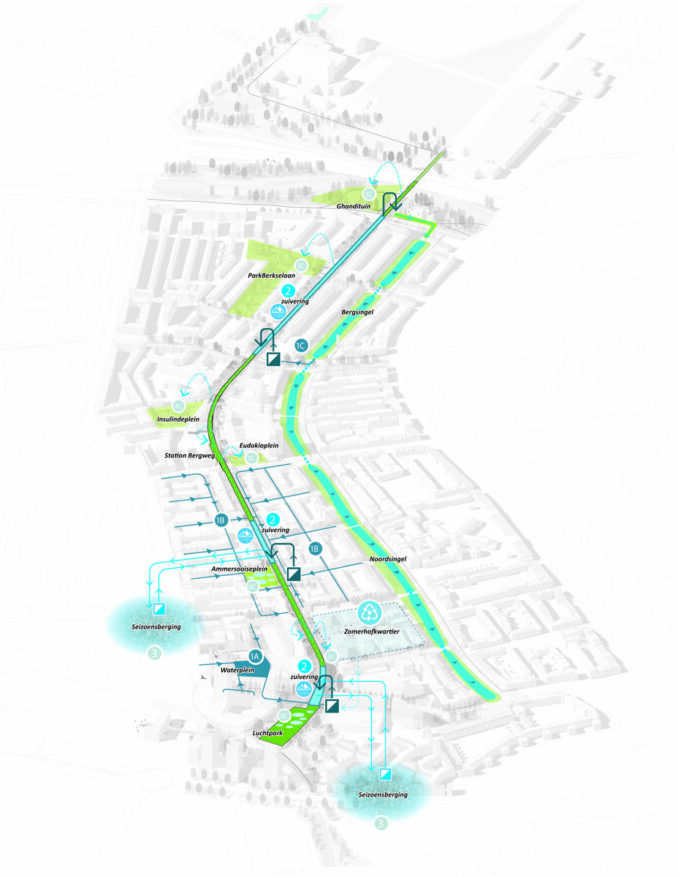
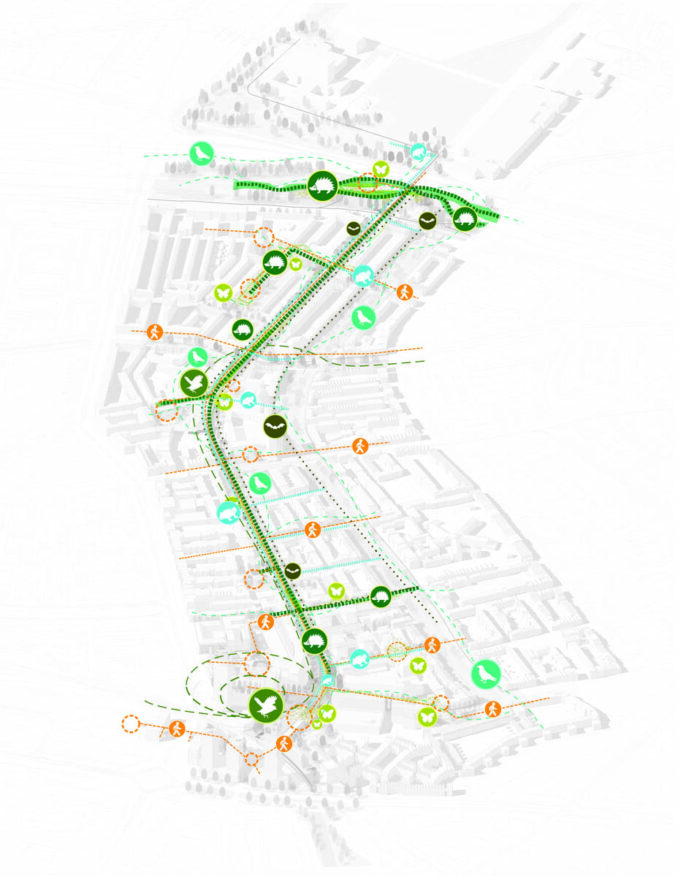
A nature inclusive park
The park is not only open for people. Animals too are considered ‘clients’ of the Hofbogen park. Native planting and fresh water offer migration space, shelter and food for bees and butterflies, toads, bats, birds and hedgehogs. They have their own ways to access the park. The Hofbogenpark connects to a larger ecological corridor and brings nature deep in the heart of the city.
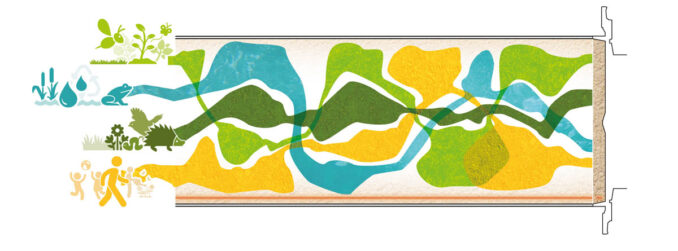
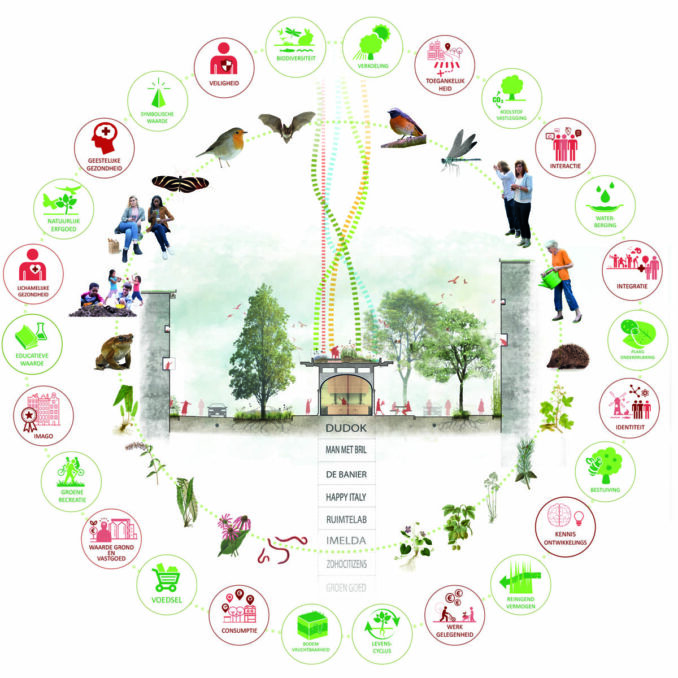
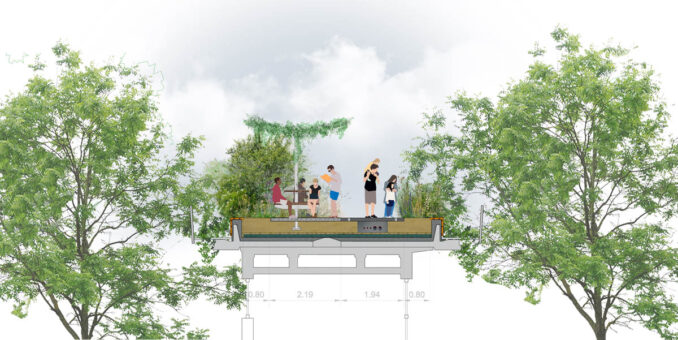
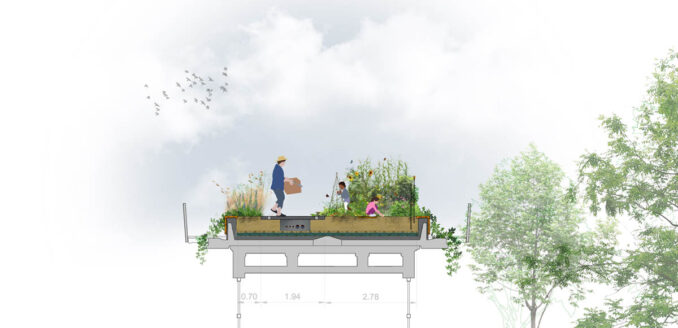
A climate adaptive park
As a city in the Dutch delta, Rotterdam is vulnerable for climate change. The city therefor is an international frontrunner in sustainable water management. With the Hofbogenpark, Rotterdam will showcase a next generation of climate adaptive urban solutions. Rainwater from the immediate surroundings is collected and treated by natural processes (soil & helophytes) in the Hofbogenpark and stored in underground aquifers. In times of drought and heat stress, the stored rainwater can be reused in the Hofbogenpark for irrigation, playing and other purposes.
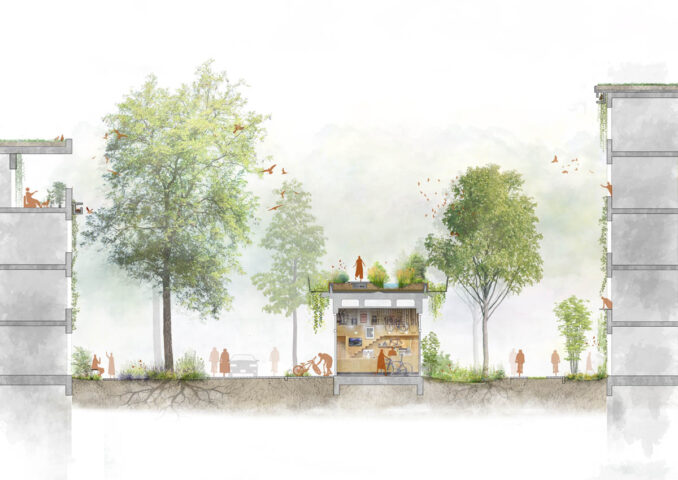
A network park
The elevated Hofbogenpark is part of a larger network park that will develop around the line the coming years. In this network park, activities that need more space will be developed, together with a substantial ‘greening’ of the surrounding streetscape. A future connection over the highway to connect the open landscapes around Rotterdam is also foreseen in the network park.
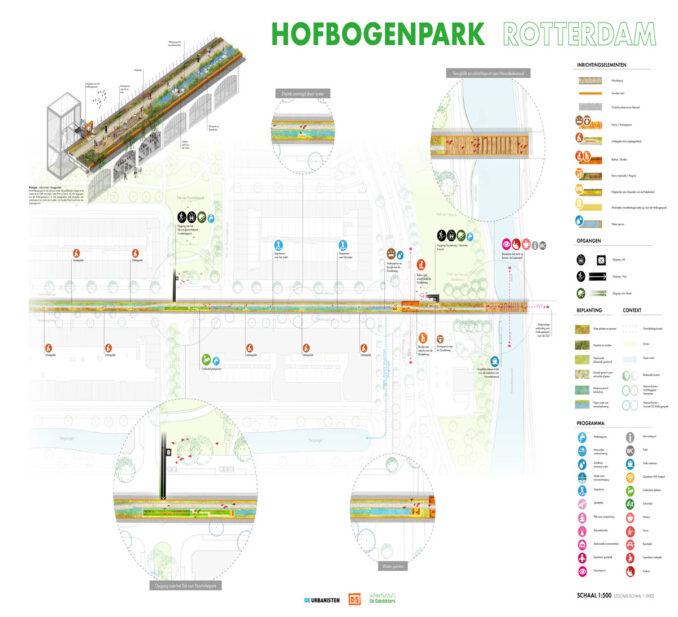
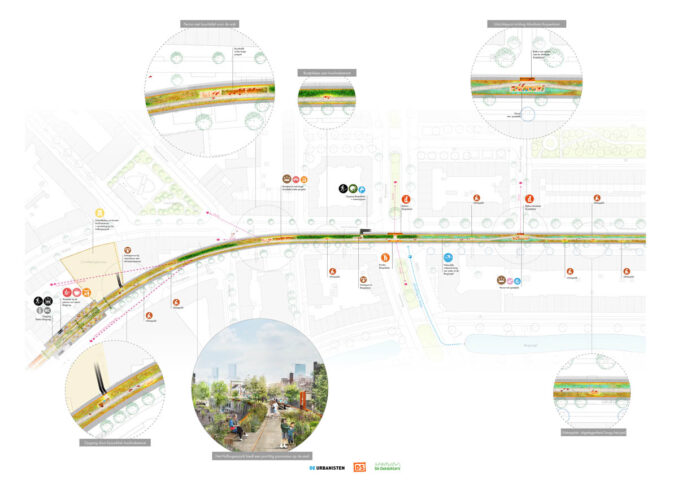
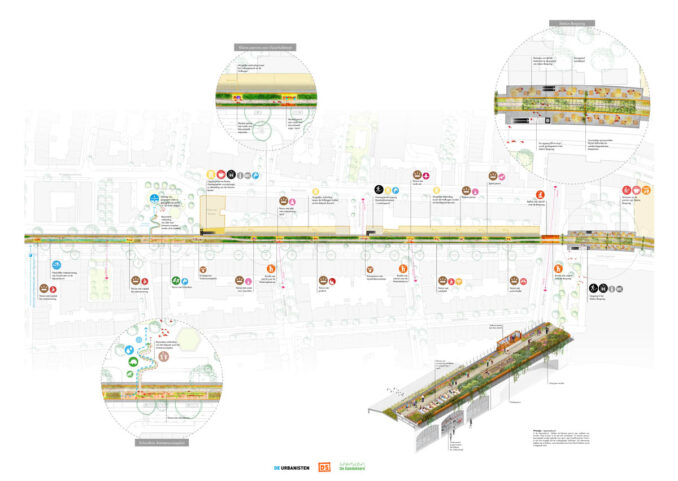
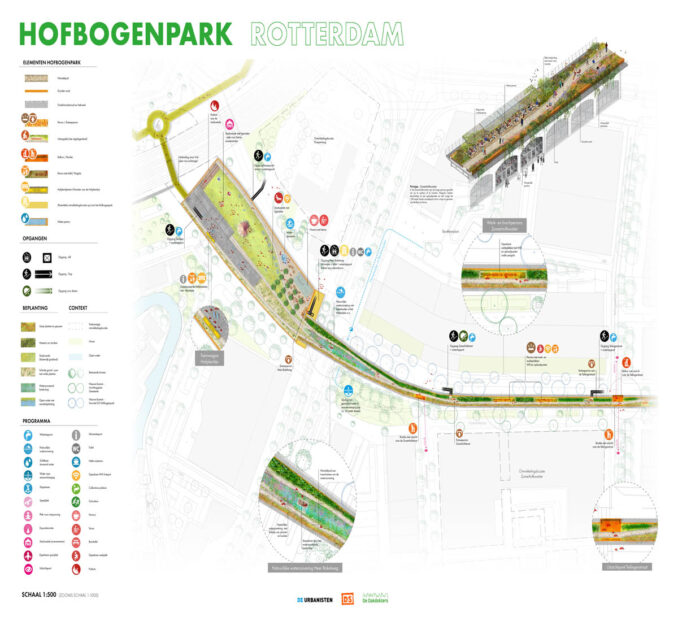
Big 7
Corona made us aware of the importance of an attractive and green outdoor space for all people of Rotterdammer. The Hofbogenpark is part of a EUR 233 million investment by the city of Rotterdam in seven green projects. The seven projects add new attractive public places where residents and visitors can meet, move and recreate. In addition, they provide more employment, an attractive business climate for entrepreneurs and more space for outdoor festivals.
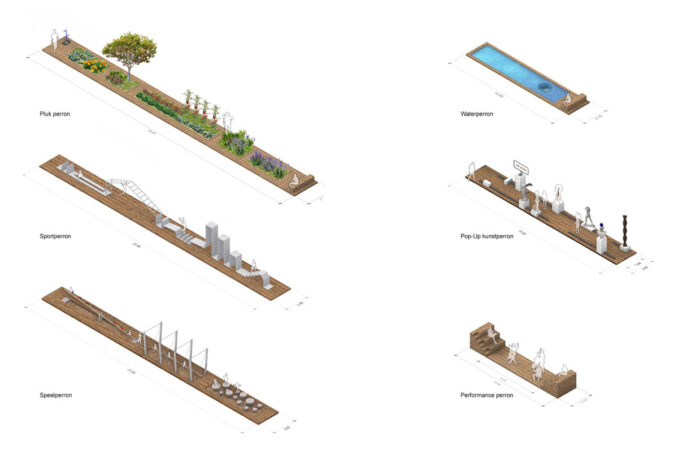
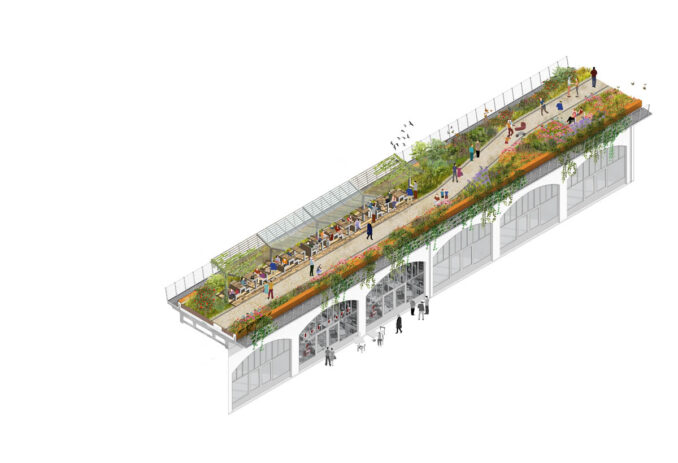
Making the park together
The preliminary design for the Hofbogenpark was made by De Urbanisten in close collaboration with DS landscape architects and De Dakdokters. The project was commissioned by the Municipality of Rotterdam and Dudok Group, the owner of the “Hofbogen“. The community of the surrounding districts has been involved from the beginning of the project.
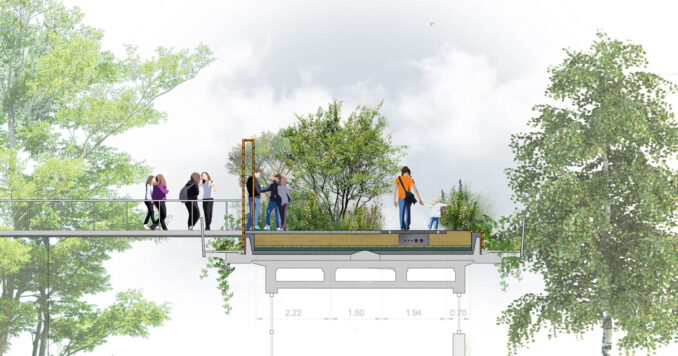
Hofbogenpark Rotterdam
Location: Rotterdam, The Netherlands 51° 56′ NB, 4° 28′ OL
Design team: De Urbanisten in collaboration with DS landschapsarchitecten & De Dakdokters
Client: Municipality of Rotterdam & Dudok Group
Status: Conceptual design
Specifications: Public park on railway viaduct
- Length:
approx. 1.9 kilometer- Width: approx. 8 meters
- Height: approx. 6 meters above ground level
Total costs: € 46.000.000
Estimated costs are for the Hofbogenpark including redesign of adjacent streets and new viaduct over highway A20
Funding: € 35.000.000 by Municipality of Rotterdam (over longer period) and € 11.000.000 co-financing

